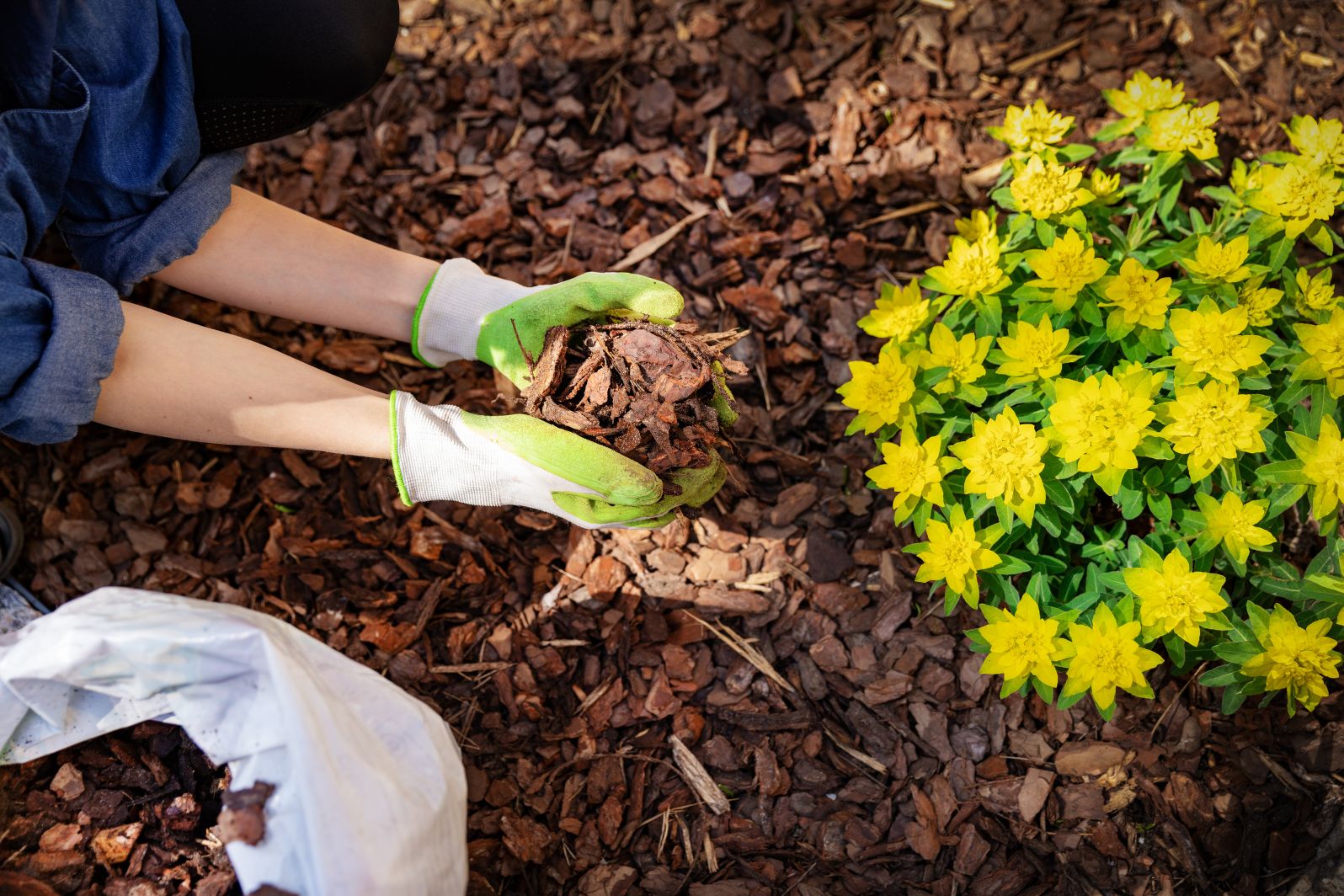In a recent survey, more than half of American households engage in some form of gardening. You might be one of them.
Are you trying to make your garden better than ever? Have you considered using rubber mulch?
Let’s go through the benefits of using rubber mulch in your backyard.
1. Weed Suppression
Rubber mulch acts as a barrier to prevent weed growth. It forms a dense and compact layer that suffocates weeds by preventing them from receiving air and water.
This smothering effect inhibits the growth of weed seedlings. It also prevents established weeds from spreading further. This mulch can be an obstacle that makes it difficult for weeds to push through and establish themselves.
Rubber mulch can also help suppress weed seeds present in the soil. As the mulch decomposes very slowly, it reduces the chances of dormant weed seeds from reaching the soil surface and germinating. This reduces the overall weed population over time.
Using this mulch creates a less favorable environment for weed growth by reducing competition for essential resources like water and nutrients. By providing a protective layer on the soil surface, rubber mulch limits the access of weeds to these resources, giving your desired plants a competitive advantage.
2. Moisture Retention
Rubber mulch helps retain moisture in the soil by reducing evaporation.
Mulch acts as a protective layer that covers the soil, reducing direct exposure to sunlight. This helps minimize evaporation by creating a barrier that prevents water from escaping rapidly from the soil surface. By reducing evaporation, mulch helps to retain moisture in the soil for a longer period.
With improved moisture retention in the soil, the need for frequent watering is reduced. Mulch can help extend the time between watering sessions by preserving soil moisture levels, especially during periods of drought or hot weather.
Just make sure you don’t use too much. Find out how much rubber mulch you need before you get started.
3. Soil Insulation
Another benefit of rubber mulch is soil insulation. Rubber mulch acts as an insulating layer, helping to regulate soil temperature. It provides a buffer between the soil and the external environment, reducing temperature fluctuations.
In hot weather, rubber mulch can help keep the soil cooler by shading it from direct sunlight. In colder seasons, it can help retain soil heat and prevent rapid temperature drops.
Rubber mulch can provide protection against frost damage. During freezing temperatures, the insulating properties of rubber mulch help minimize soil freezing and thawing cycles. This can be particularly beneficial for plants with sensitive roots that can be damaged by frost heaving or fluctuating temperatures.
4. Erosion Control
The dense nature of rubber mulch helps prevent soil erosion caused by heavy rainfall. It acts as a protective layer that keeps the soil in place, reducing the risk of erosion and the loss of valuable topsoil.
Rubber mulch acts as a barrier against wind erosion. It prevents soil particles from being carried away by strong winds, which can lead to the loss of valuable topsoil. The weight and density of rubber mulch make it less susceptible to wind displacement compared to lighter organic mulches.
If you have slopes or inclines in your yard, rubber mulch can aid in stabilizing the soil and preventing erosion. The thick layer of mulch helps anchor the soil in place, reducing the likelihood of soil movement and surface runoff on slopes.
5. Safety and Injury Prevention
Rubber mulch has excellent shock-absorbing properties, making it an ideal surface for areas where falls and impacts are likely, such as playgrounds.
The cushioning effect of rubber mulch helps to reduce the risk of injuries by absorbing energy and providing a softer landing surface.
Rubber mulch is often installed to meet safety standards for fall protection. it absorbs the impact of foot traffic, raindrops, and other forces that can compact the soil. Reduced soil compaction improves soil structure, allowing for better water infiltration and reducing the potential for erosion.
Rubber mulch is often installed to meet safety standards for fall protection. It is designed to provide a safe surface that complies with impact attenuation guidelines, ensuring that the surface can absorb the impact energy effectively from falls. The thickness and density of rubber mulch can be adjusted based on the required fall height protection.
6. Environmentally Friendly
Rubber mulch is typically made from recycled tires, which helps reduce waste and repurpose a material that would otherwise end up in landfills. By using recycled rubber, rubber mulch contributes to waste reduction and promotes recycling efforts.
Rubber mulch is long-lasting and does not require frequent replacement like organic mulches. This can reduce the overall consumption of mulch materials over time and lower the associated environmental impact.
Rubber mulch does not absorb water like organic mulches, which can affect water runoff patterns. When using rubber mulch, it’s important to consider how it may impact water drainage and ensure that it does not contribute to excessive runoff or water pollution.
7. Low Maintenance
Rubber mulch requires minimal maintenance. Rubber mulch does not decompose like organic mulches, which can require regular replacement. Its long-lasting nature means you won’t have to worry about mulch breaking down and losing its effectiveness over time.
Rubber mulch tends to settle less compared to other types of mulch. This means you won’t have to frequently reapply or level the mulch layer, saving time and effort in maintenance.
Rubber mulch is less appealing to pests and rodents, reducing the likelihood of infestations or disturbances in your garden. This can help maintain a cleaner and more hassle-free outdoor environment.
Start Using Rubber Mulch Today
Clearly, there are a lot of different reasons to use rubber mulch.
Do you want more home and garden advice? We’ve got you covered. Read some of our other articles for more advice on anything you could ever need.



